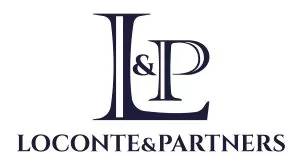On October 20, 2022, the Italian Tax Authority published the Circular Letter No. 34/E that provides guidance on trust direct and indirect taxation and relevant clarifications on tax monitoring obligations and wealth taxes applicable to trusts and beneficiaries.
In general, the new provisions introduce many interesting news and they show the introduction of a case-by-case approach of the Italian Tax Authority, but also rise new interpretive doubts, concerning different aspects of taxation.
With a special regard to indirect taxation, the Italian Tax Authority has modified its previous interpretation and now it gives relevance to each phase of the life of a trust:
- Establishment of a trust (without attribution of assets to the trust itself): the deed of trust with which the settlor set up the trust shall be subject to registration tax in a fixed amount equal to 200 Euro (if drawn up by public deed or by authenticated private deed).
- Transfer of assets to the trust: it shall be subject to registration tax in a fixed amount equal to 200 Euro (if drawn up by public deed or by authenticated private deed).
- Transfer of trust's assets to beneficiaries: Italian inheritance and gift taxes shall apply at this moment and assets valuation is made at the moment of the transfer to beneficiaries.
- Operations carried out by the trustee during the life of the trust: they are subject to autonomous taxation, according to their nature and legal effects on a case-by-case basis.
- Change of trustee: the deed by which the replacement of the trustee takes effect shall be subject to registration tax in a fixed amount (if drawn up by public deed or by authenticated private deed).
So, in case of existing trusts in which inheritance and gift taxes have been applied at the moment of the transfer of the assets into the trust, no further taxes will be due when the assets will be finally transferred to the beneficiaries if beneficiaries and assets and rights transferred remain the same from the beginning.
But, an exception is mentioned in the Circular Letter n. 34/E: a stable attribution of assets to the beneficiaries can come already from the deed of trust when beneficiaries are identified and hold a full, actual and enforceable right to claim that specific assets is attributed to them. In this case, the transfer of assets to the trust triggers the application of Italian inheritance and gift tax (e.g. "vested" beneficiaries), so it is essential to analyze the specific provisions in the trust deed to define the tax burden.
In addition, the Circular Letter confirms that taxpayers may choose, under certain conditions, to claim the refund of the Italian inheritance and gift taxes applied at the moment of the transfer of the assets to the trust.
Also, no inheritance and gift tax will apply if the settlor is not an Italian resident and the assets are located abroad.
With reference to opaque trusts, the Circular Letter provides a distinction depending on the nature (commercial or non-commercial) of the trust as well as its residence.
Also, it provides dispositions on the identification of foreign opaque trusts established in a "low tax" jurisdiction, on the distinction between "capital" and "income" and on tax treatment of income distributions.
Both accounting and non-accounting records (e.g. bank statements) can be used as evidence that the foreign trust has distributed part of the trust's capital rather than income. If there is no evidence that the capital is distributed, the entire amount is qualified as a taxable income and has to be calculated following Italian tax rules.
Furthermore, the Italian Tax Authority explains when beneficiaries of opaque foreign trusts are required to comply with Italian tax monitoring obligations and it provides further clarifications in relation to the scope of application of wealth taxes on immovable properties and financial assets held abroad (so called "IVIE" and "IVAFE").
The content of this article is intended to provide a general guide to the subject matter. Specialist advice should be sought about your specific circumstances.
